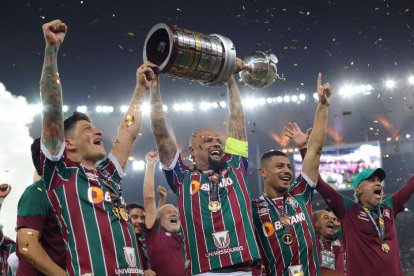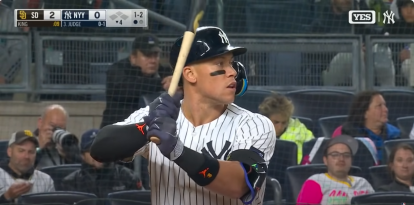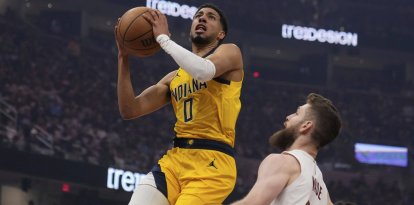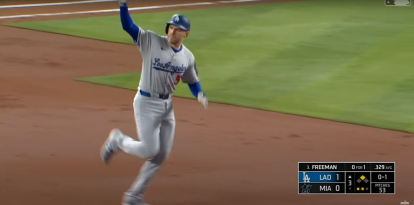The pursuit of “eternal glory”: everything you need to know about the Copa Libertadores 2024
Format, teams and the enticing prizes at stake: this is what you should know about the most important soccer tournament on the continent.

Cordon Press
"Eternal glory" is the slogan of the Copa Libertadores de América, the most important club tournament on the continent when it comes to soccer. Year after year, 32 teams fight to be immortalized on the characteristic trophy, which has the name of each and every one of the clubs that once shouted "champion" printed on it. On the eve of a new tournament, which promises to be one of the most profitable for participants, this is what you need to know before sitting in front of the television and watching the thrilling games.
The 'Libertadores,' as the competition is commonly known, is the most sought-after by all the clubs in South America. Year after year, clubs compete first to qualify and then to lift the cup. Its audience, organization, impact and economic rewards make it the second most important club competition in soccer, only surpassed by the UEFA Champions League.
At the same time, it mirrors the competition from the old continent and the Concacaf Champions Cup. It had its first edition in 1960, named the American Champions Cup. The first champion of the tournament was Peñarol (Uruguay), and after more than sixty editions, Independiente (Argentina) is the most successful team (7).
The 2024 edition begins this Tuesday, April 2, with the match between Cobresal (Chile) and Barcelona (Ecuador) and will extend until the end of the year, with the single-match final to be played in Argentina.
The traditional format
The champions and best teams from the previous season's tournaments in each country qualify for the competition, in addition to the reigning champions of the 'Libertadores' and the Copa Sudamericana, considered the B tournament on the continent.
Since 2000, 32 teams have qualified for the tournament and are divided into eight groups of four. After six games per team, three at home and three away, the first two in each group qualify for the next phase, the third in each group goes to the Copa Sudamericana, and the last are directly eliminated from the international level.
In the second round of 16, teams will face each other in individual duels determined by a draw, an event to which sports legends are usually invited. There are two 'pots,' one with all the teams that won their groups in the first phase and another with those that came second. The draw will pit a first against a second, played in two games, one in each stadium. The team with the most goals in favor will advance to the next round.
If both games are tied, an extra 30 minutes will be played, and if the tie continues, the classification will be defined in a penalty shoot-out.
The tournament continues in like fashion to the quarterfinals and semifinals and then reaches the long-awaited final, whose winner will hoist the trophy and thus achieve "eternal glory."
The favorites
The Brazilian teams have been very successful in recent tournaments, and this year does not seem to be any different. Therefore, Fluminense (last year's champion), Palmeiras, Flamengo and Gremio are the top favorites to win the trophy.
Fluminense
'Flu' is an obvious option since they won their first Copa Libertadores in 2023 after defeating Boca Juniors in a heart-stopping final.
Looking ahead to this season, the team has managed to keep its top players, Germán Cano, Paulo Henrique Ganso Jhon Arias, John Kennedy, and Marcelo, while incorporating Douglas Costa and Renato Augusto, who have recently appeared for the Brazilian national team and in European football.
The team led by Fernando Diniz will seek to copy the two-time championship achieved by Palmeiras a few seasons ago.
The great challenge for 'Flu' is to sustain their excellent performance from last season, when they stood out for taking to the highest level a functional game proposal that amazed and revolutionized South American football. The task is huge, but those on Diniz's team are ready for it.
Flamengo
The other team from Rio de Janeiro is a perennial candidate due to the great squads it has been building for the past eight years. With the help of Tite, a coach who earned the right to lift the Copa Libertadores trophy in 2012, 'Mengão' hopes that the strength of its players can propel them to repeat their championship win in 2022.
Matías Viña, David Luiz, Erick Pulgar, Georgian De Arrascaeta, and goalkeeper Agustín Rossi stand out among its players. They have a front line of strikers who could well be the best in the tournament: Gabriel Barbosa, Pedro, Everton, and Bruno Henrique.
Its managers broke the bank to hire Nicolás De la Cruz, a midfielder for the Uruguayan National Team who comes straight from bursting onto the scene in Argentine soccer during his time at River Plate.
Palmeiras
'Verdão' wants to break their recent drought after being back-to-back champions in 2020 and 2021. The team comes from winning almost all the tournaments in Brazil in 2023 and has a squad very similar to the one that led them to glory a few years ago.
The Portuguese Abel Ferreira, a coach from a conservative school who does not follow the traditional Brazilian style of play, continues to lead Weverton, Gustavo Gómez, Raphael Veiga, Dudú and Rony. However, this time they have the biggest star of the competition: a footballer who is not yet 20 years old but already part of Real Madrid: Endrick. The winger is his country's greatest promise, as he showed his prowess during the last FIFA game and was sold in 2022 to the Spanish club for 70 million euros, the most expensive transfer from Brazil after Neymar.
Guild
The last candidate, also from Brazil, is the team led by Renato Gaucho, who won the Copa Libertadores both as a player and on the bench.
With a more defensive style, Gremio has players such as Agustín Marchesin, Pedro Geromel, Walter Kannemann, Franco Cristaldo, Yeferson Soteldo and Cristian Pavón.
In 2023, they hired forward Diego Costa, who triumphed in Europe during his years at Atlético de Madrid and Chelsea.
The challenge of breaking the solid Brazilian streak
A few steps behind appear the teams of River Plate (Argentina), Liga de Quito (Ecuador), Estudiantes de La Plata (Argentina) and Libertad (Paraguay). While the former has the best team of players in their country and a more than interesting recent history on the international level, the Ecuadorians have just won the Copa Sudamericana and have renowned footballers in their ranks. Estudiantes has a great presence and a cup-winning mystique that strengthens it in international tournaments. At the same time, the Paraguayans have recently won all the local titles in 2023, but the change of coach could be a mitigating factor in their performance.
Last year, Argentine Daniel Garnero left his position as coach of Libertad to take on the challenge of directing the Paraguay National Team. His replacement, Ariel Galeano, is a young man with no experience in the international field, so the competitiveness of the Libertad team is unknown.
All of them will fight to end Brazil's historic streak, which has seen the country take the last five editions. There are numerous reasons, but a large part is directly related to the economic power of their clubs, which hire high-level players who pay 'European' salaries. They have a natural talent that few countries in the world have, which allows them to sell their players at prices that others cannot and go to market with extensive budgets.
Indeed, three clubs from the same country, Fluminense, Palmeiras and Flamengo, won all the last five editions, a dominance never seen in the tournament. Therefore, non-Brazilians will have an extra challenge in this edition: breaking the 'Carioca' hegemony in the Copa Libertadores.
Qualifying for the cup: an economic relief for the clubs
"What football generates is reinvested in football! We have decided to increase the prizes, reaching a historic figure for world football. The final of the Conmebol Libertadores 2024 will be the best paid in the world. Let's continue believing big!" celebrated Alejandro Domínguez, president of Conmebol, a few hours after the draw for the group stage.
The Paraguayan knew perfectly well what he was talking about, since this edition of the contest promises to be one of the most profitable for the participating clubs, whose leaders probably popped at least one bottle of champagne after merely qualifying to play in the tournament.
It turns out that each team will receive $1 million per game in the group stage, about $6 million in total just for participating, in addition to another $330,000 per game won in this first stage. For example, assuming a team bulldozes through the group stage and wins all six games, they would pocket $7.9 million.
As one would expect, the prizes increase as the competition progresses. Each team will receive $1.2 million per game in the round of 16, $1.7 million in the quarterfinals, and $2.3 million in the semifinals. As for the final, the champion will receive the historic trophy accompanied by a check for $23 million, while the runner-up will receive $7 million in addition to the title of second place.
Finally, we must not forget that this edition of the Copa Libertadores will grant South American teams the last three available places in the 2025 Club World Cup.
There are already three safe qualifiers: Palmeiras, Fluminense and Flamengo, the last three champions of the editions. The other three places will be distributed as follows: the winner of the 2024 Copa Libertadores and the two best-positioned teams in the Confederation ranking, currently Boca Juniors and River Plate, both from Argentina, clearly dominate, with 71 and 67 points respectively.
Further back, Olimpia, from Paraguay, appears with 57 points. However, neither Boca nor Olimpia will play this edition of Libertadores, and several teams will aim to try to steal that third place, such as Cerro Porteño from Paraguay and Nacional from Uruguay, which could add more points than Olimpia if they reach the quarterfinals or the semifinals of the tournament.
Third place is important in case Palmeiras, Fluminense, and Flamengo become champions of this edition of the Libertadores because, in that case, the ranking will define the other three South American teams classified.
The Club World Cup represents an enticing prize for the South American teams. Mere participation in this tournament is worth 50 million euros, a gigantic sum for the clubs in the region. A number that high could alleviate debts or build sports projects with a budget much higher than usual.
Recommendation





















